College of Human Sciences
Is Inxeba movie is colonialism at its most advanced level
As part of its Research and Innovation week activities, the Department of Anthropology and Archaeology hosted a thought-provoking discussion on the controversial local film, Inxeba: The Wound.
Providing some background on the movie, the Department’s Professor Chris van Vuuren said the film tells the story of a gay factory worker who travels to the rural Eastern Cape to oversee the Xhosa initiation process only to have his “secret” discovered by one defiant initiate.
“It depicts the coming-of-age story of an unapologetic and fearless gay city boy, and tells the story of a love affair between two men during the Xhosa traditional initiation ritual. It has drawn wide criticism from Xhosa speaking people in particular who argue that some of the practices in the film are presented in a distorted and inaccurate way.”
Professor Van Vuuren said some of the criticism came from the Congress of Traditional Leaders who complained that the film is culturally insensitive and that it distorts the Xhosa tradition of circumcision. “Their concerns were also echoed by traditional leaders from other communities who practice male initiation ritual such as the Ndebele and Sotho speaking communities.”
He said Inxeba might not be for everyone, but there are many young South Africans, particularly from the black queer community, who have every right to watch and engage with it because it reflects something of their own experience. “The media backlash against Inxeba seems to be proportionally larger than media response to Mandela’s Long Walk To Freedom and it can be speculated that the film presents a homophobic subtext.”
Traditional leaders have called for the movie to be banned and for film-makers to issue a public apology for portraying their traditions as “barbaric”. “Traditionalists argue that the film provides a platform for attack on the notion of ‘tradition’ and ‘culture’,” said Professor Van Vuuren, adding that they also argue that the aspects within the ritual domain of secret knowledge is sacrificed in the process.
From the University of Pretoria, Rantsu Moraka, said coloniality inscribed gender on Black people so the divide and conquer could begin. He posed the question what happens when a person is reduced to property, and said that this is what Black people have been reduced to for more than 400 years.
“How did Black people come to live out western subjectivities? What is the gender history of Blackness? … This movie showcases western gender norms. The gender we see here is from the colonial world.”
He added that the movie highlights how they (the colonisers) got Africans to fight wars about issues that has nothing to do with their true history. “The term gender, man, women, gay, is incoherent to African cultural order. From precolonial history of Africa there is empirical proof that gender was abstract to African culture. The problem is that the west can only understand African culture from their lens.”
He said Inxeba: The Wound was compelling for him not for its gender politics but because to destabalise the idea of gender is interesting. “We need to be much more critical about gender, define gender on our terms, using our own devices. This movie is colonialism at its most advanced level.”
Ntando Sindane, Unisa College of Law student, said the movie is nothing but art using our sacred culture to make money. “How is culture commodified? When you take culture and make it commerce, you are making it the colonialism of knowledge. We are told this movie is about educating society on culture, about the LGBTQi community ... Remember when you want to educate, you don’t commodify at the same time,” he said, adding that when the colonisers arrived, they removed African knowledge as forms of knowledges.
The discussion with the audience echoed the sentiment that South Africa has been built on the erasure of all that is African ... We need to find our authentic voice.
The event was broadcasted live via the College of Human Sciences Facebook page. Click here to watch the videos.
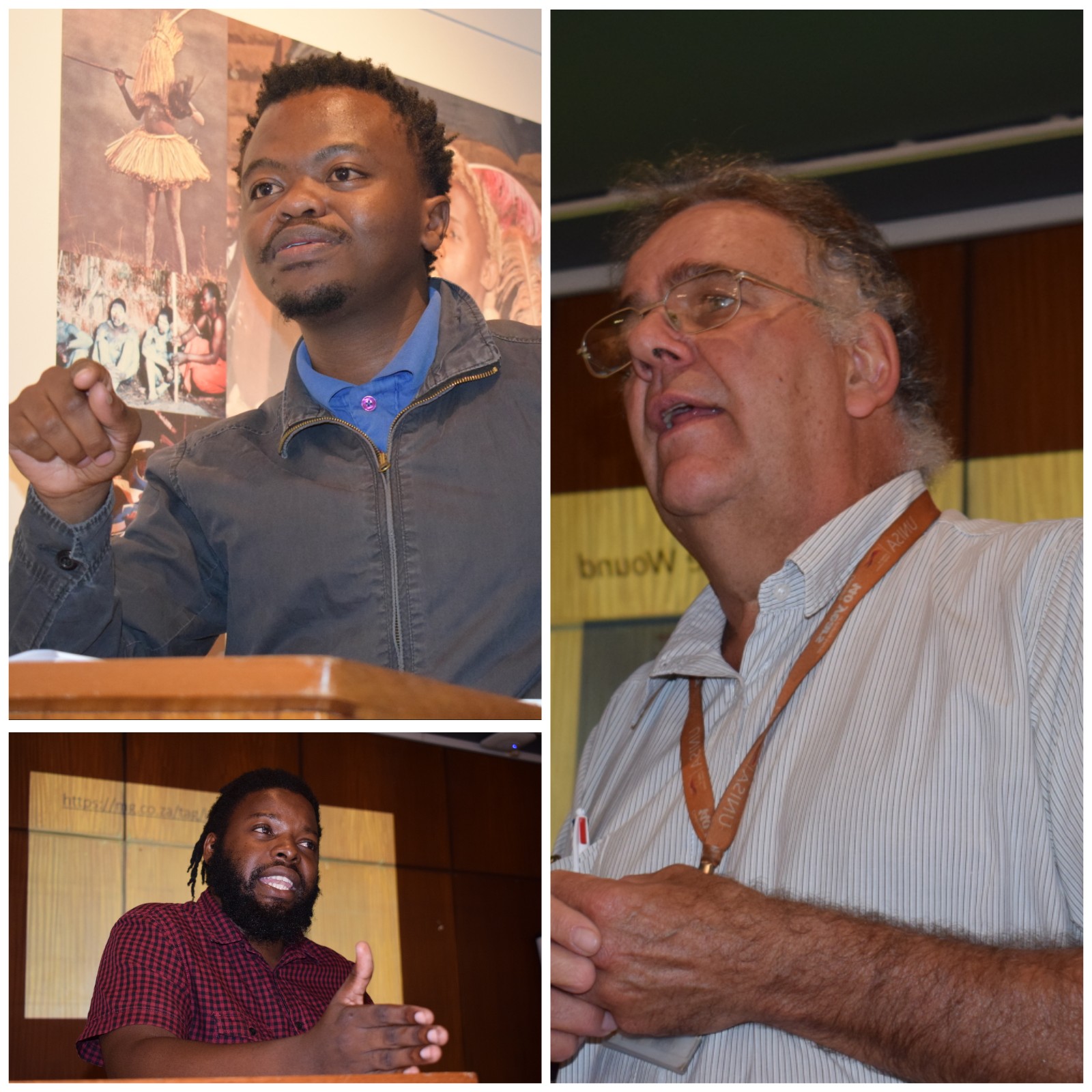
Pictured are left, Ntando Sindane (College of Law student) and Rantsu Moraka (University of Pretoria), and right Prof. Chris van Vuuren (Department of Anthropology and Archaeology).
Welcome and opening address: Launch of the Research and Innovation WeekView the VC’s full speech in SA’s eleven official languages: |
Keynote address: Gala Dinner and Research Awards CeremonyView the VC’s full speech in SA’s eleven official languages: |
*By Clairwyn van der Merwe
* By Rivonia Naidu-Hoffmeester (CHS communications and marketing)
Publish date: 2018-03-06 00:00:00.0


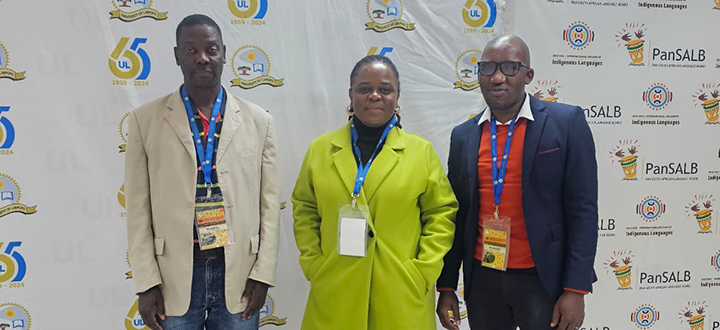 Unisa makes significant impact at ALASA 2025 Conference
Unisa makes significant impact at ALASA 2025 Conference
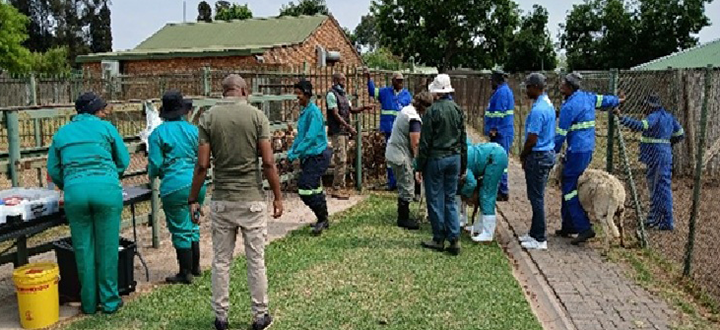 Work-integrated learning practice – extending beyond traditional distance education
Work-integrated learning practice – extending beyond traditional distance education
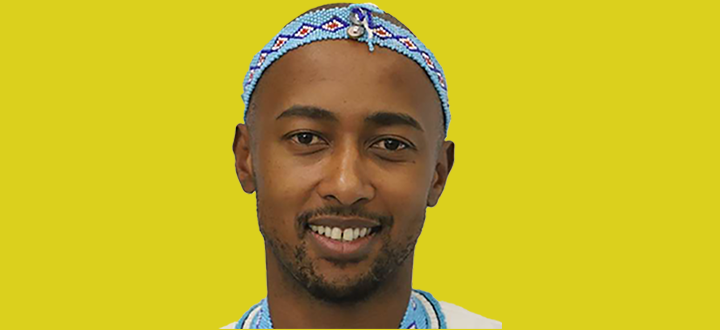 Computer scientist and ICT specialist to share 4IR insights at Unisa's CNA Research Symposium
Computer scientist and ICT specialist to share 4IR insights at Unisa's CNA Research Symposium
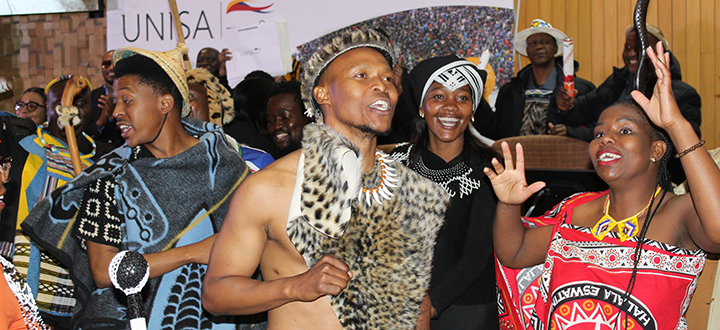 Unisa champions inclusivity with landmark language policy
Unisa champions inclusivity with landmark language policy
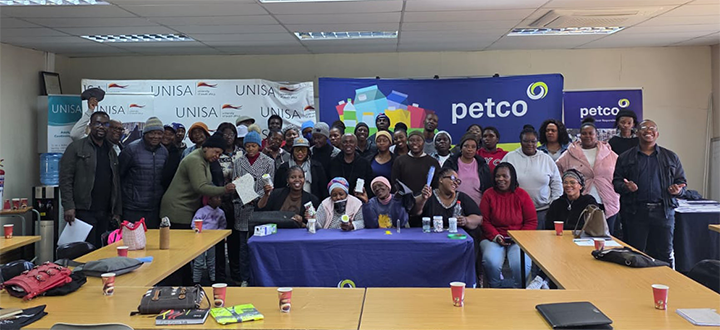 Unisa empowers Daveyton community through recycling workshop
Unisa empowers Daveyton community through recycling workshop